AUGUSTA — Campaign representatives of three Republican presidential contenders took part in Saturday’s countywide GOP caucus at Farrington Elementary School in Augusta.
Kim Pettengill, GOP state committeewoman from Kennebec County, said she didn’t know about two of them coming until she got calls Friday evening from the campaigns of former U.S. House Speaker Newt Gingrich and former U.S. Sen. Rick Santorum, of Pennsylvania, saying they would send representatives to Saturday’s caucus.
Former Massachusetts Gov. Mitt Romney’s son Tagg Romney already had been expected to attend.
More than 300 Republicans from across Kennebec County attended the caucus. GOP activists were asked to hold local caucuses between Feb. 4 and 11, and more than 30 of them were being held Saturday statewide.
Republicans from all the county’s municipalities except Hallowell, Monmouth, Pittston, Rome and Waterville were at the caucus at Farrington.
The GOP plans to announce the winners Saturday. The Maine Democratic Party will hold all municipal caucuses on Sunday, Feb. 26.
“Gingrich and Santorum (campaigns) reached out to us yesterday, and we heard from Senator (Olympia) Snowe and Tagg Romney, Mitt Romney’s son. He’s speaking now,” Pettengill, of Farmingdale, said late Saturday morning. “Tagg was here four years ago. It’s nice to actually have a family member come up for the campaign.”
Tagg Romney, accompanied by his son Joe, told party faithful in Augusta that President Barack Obama may be well-liked by many Americans, but his polices have been “disastrous.”
State Treasurer Bruce Poliquin represented Mitt Romney, Pat Eisenhart represented U.S. Rep. Ron Paul, Rick Tyler represented Gingrich, and Jeff Cucci represented Santorum.
Elaine Bridge, Maine Republican Party treasurer and a Manchester resident, said there are two components to the Maine caucuses. First, delegates to the state convention in May are elected from the attendees. Then a straw poll, called a presidential preference ballot, is taken of the individuals in the room. The results of this secret ballot are reported to the news media.
The state convention determines who goes to the Republican National Convention. Even after the state convention, all delegates remain unbound to any candidate.
Pettengill said many Ron Paul supporters were at the caucus, prompted by the campaign’s outreach efforts and Paul’s recent visit to central Maine.
Michael Hein, an attendee from Augusta and a former Republican legislative candidate, said he stood out in front of the school, talking to people for an hour and a half before the start of the caucus.
“It was stunning, the amount of people who said, ‘The only reason I’m here is to support Ron Paul,'” Hein said. “These are new people in the community. These weren’t longtime Republicans. They’re our neighbors and friends. I believe two-thirds of this caucus supports Ron Paul, just from talking to the people coming in.”
Because of her role as a caucus organizer, Pettengill declined to say which candidate she is backing.
Pettengill said the start of Maine’s local caucuses has gained news media attention the last couple of weeks.
Party leaders have asked Maine Republicans to hold their caucuses between Feb. 4 and 11, with statewide results to be announced on the latter date in Portland. The nonbinding results are the first step toward electing Maine’s 24 delegates to the Republican National Convention.
“It’s different for us,” Pettengill said. “We don’t do a primary. Because of our straw poll, we’re doing it early. Every national news outlet has contacted me and asked questions. They’re very interested in the results.”
Rep. Dennis Keschl, R-Belgrade, said it’s hard to say whether Maine, with its small population, would make a difference in the presidential election.
“But there’s a lot of enthusiasm here in Maine,” Keschl said. “We went ‘red’ (in 2010), and you know the old adage ‘as Maine goes so goes the nation.’ And it may come back to that.”
Peter Sargent, of Belgrade, said he is interested in a presidential candidate — possibly Romney — who can capture the independent vote in the general election.
“That’s my focus at this point,” Sargent said. “I prefer to be more conservative; but realize by pulling in more of the independent vote, we could beat Obama. That’s the key.”
Sargent said other caucuses he attended over the year never had the amount of cars in the parking lot that there were Saturday, which shows there’s a lot of enthusiasm.
“It kind of gives you an idea that people are concerned more than they have been in the past, which is good,” he said. “Hopefully, the Democrats will do their thing. That’s part of the system. That’s how this country works.”
Martha Alward, from Windsor, listened to Tagg Romney speak. Although she leans independent, Alward said she registered as a Republican last time.
This time around, she favors all the Republican candidates except one.
“I would vote for any one of them except Newt,” Alward said. “He’s not honest. Not many of them are, but he’s especially not.”
Alward said she believes America is headed in the wrong direction, and she’s still trying to figure out what should be done to change that.
“I’m in the middle,” she said. “I don’t take anybody’s word for anything. The latest thing was Romney paying 15 percent in taxes, which is very misleading. He pays 35 percent on his earnings and 15 percent on his capital gain. He also gave 15 percent to charity, so I think he pays his fair share.”
Mechele Cooper — 621-5663
mcooper@centralmaine.com
Like most Republican Party caucuses, there are two components to the Maine caucuses. First, delegates are elected from the attendees. These delegates later represent the caucus goers at the state convention in May.
Then, a straw poll, called a presidential preference ballot, is taken of the individuals in the room. The results of this secret ballot are transmitted to the media, who use it as a “snapshot” of the opinions of Maine Republicans.
Although the media report the results of the ballot, and assign delegates appropriately, it is the state convention that determines who actually goes to the Republican National Convention.
Even after the state convention, all delegates remain unbound to any candidate.
Send questions/comments to the editors.

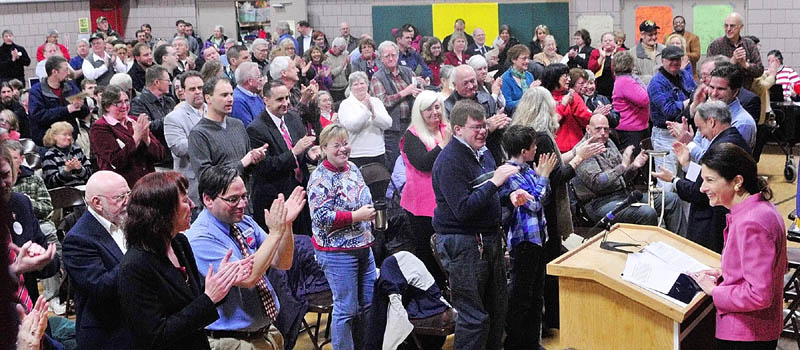
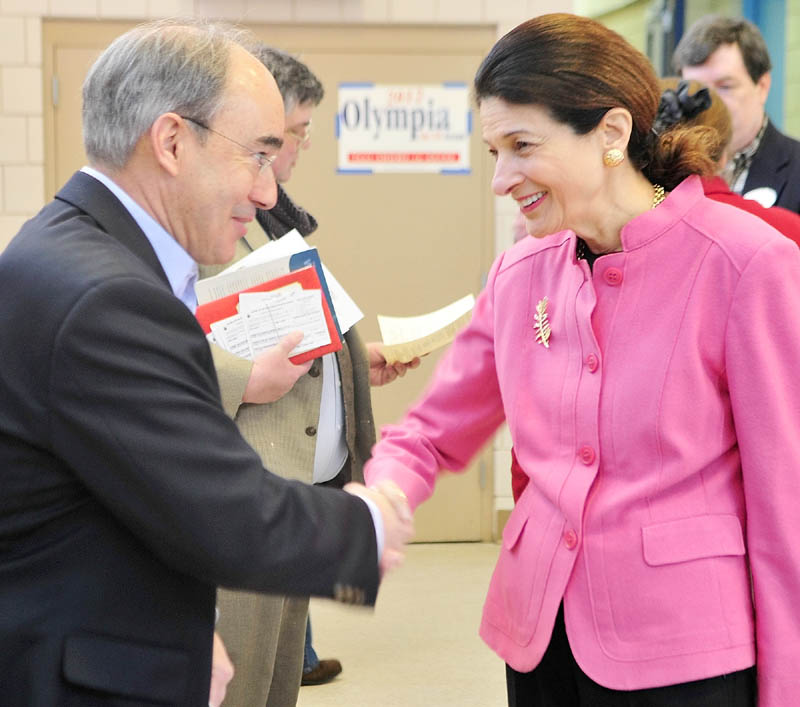
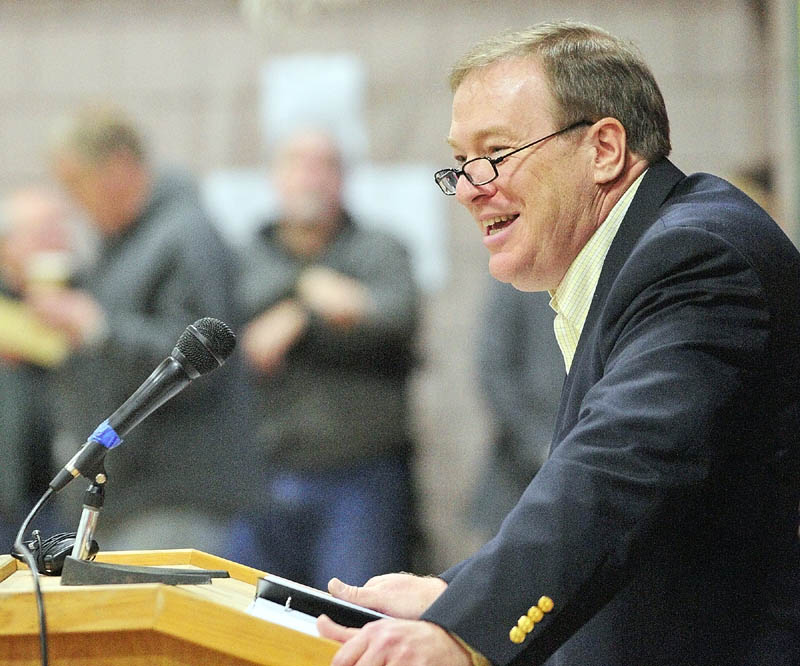
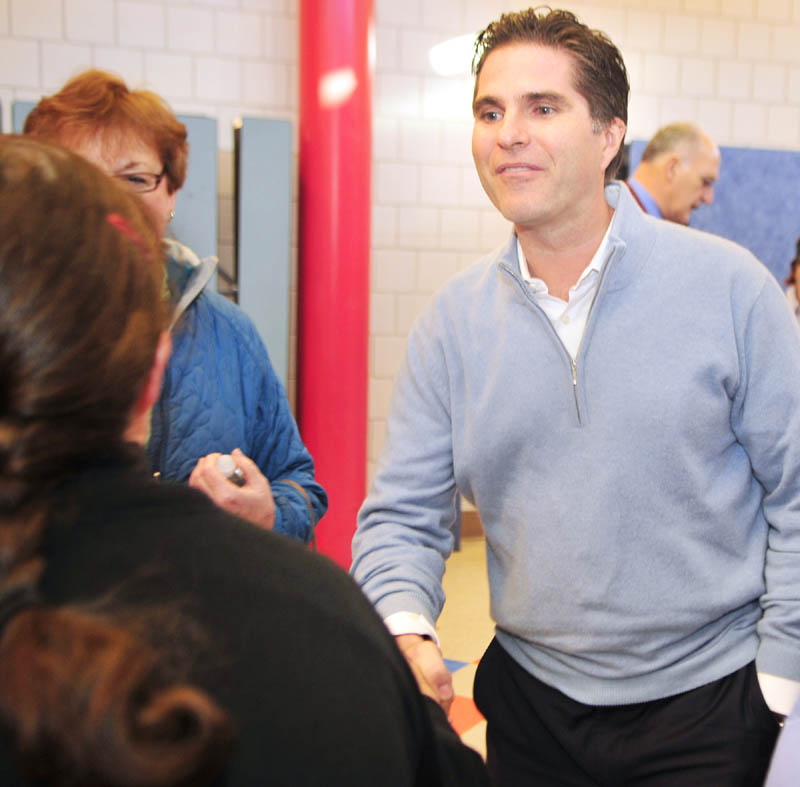
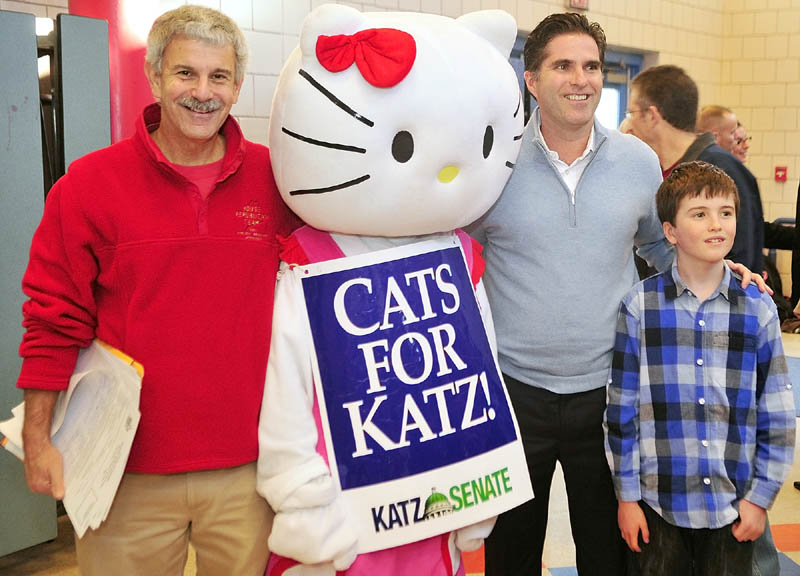
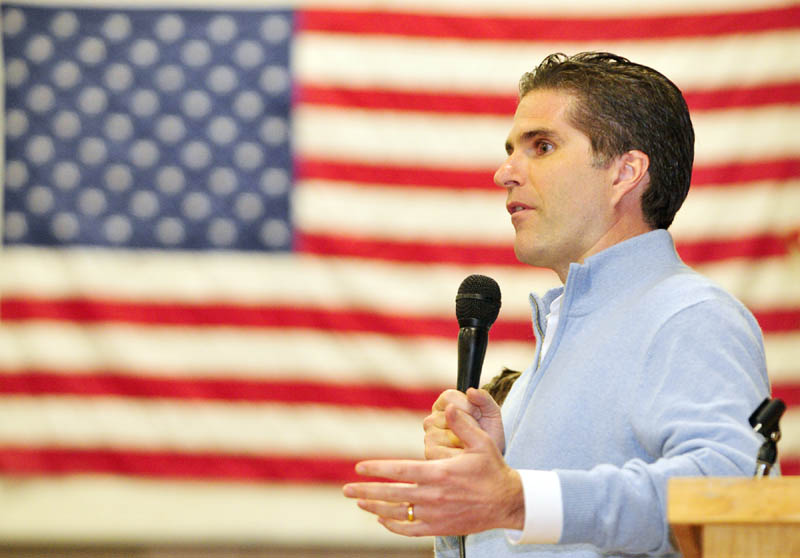

Success. Please wait for the page to reload. If the page does not reload within 5 seconds, please refresh the page.
Enter your email and password to access comments.
Hi, to comment on stories you must . This profile is in addition to your subscription and website login.
Already have a commenting profile? .
Invalid username/password.
Please check your email to confirm and complete your registration.
Only subscribers are eligible to post comments. Please subscribe or login first for digital access. Here’s why.
Use the form below to reset your password. When you've submitted your account email, we will send an email with a reset code.